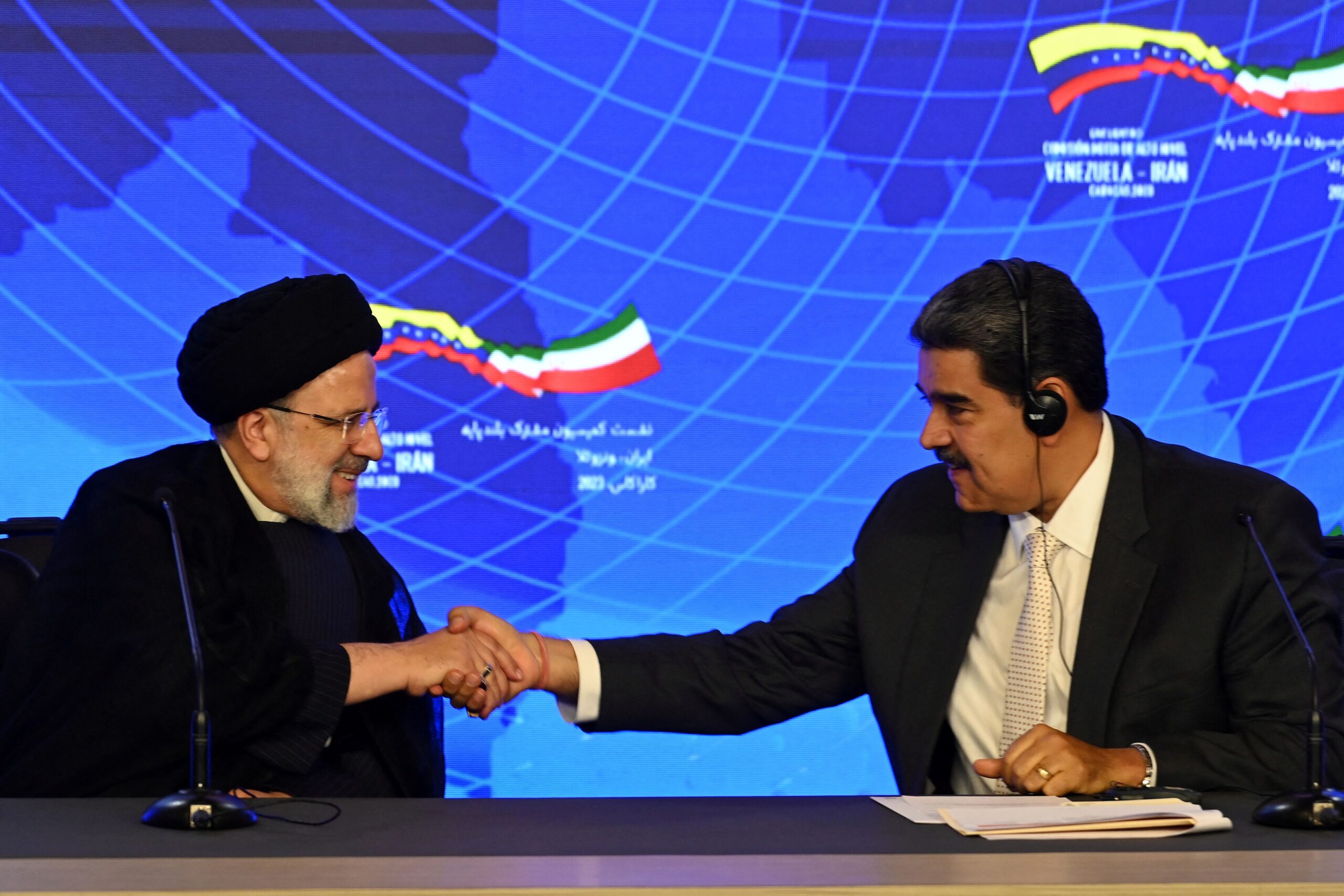- June 27, 2025
What Iran’s defeat just taught Venezuela, Cuba — and why they should worry

Indeed, the most interesting side-story of what may be remembered as “the 12-day war” between Israel and Iran — if the fragile cease-fire holds — is that Iran’s most powerful allies, Russia and China, did not come to the Iranian regime’s rescue.
Iran’s foreign minister, Abbas Araghchi, flew to Moscow immediately after the June 22 U.S. strike, seeking military support as Iran mounted its counterattack by firing missiles against Israel and Qatar. But he returned to Iran empty-handed.
Russian President Vladimir Putin, who had gladly received Iran’s military drones in his war against Ukraine, told the Iranian foreign minister in televised remarks that the strikes against Iran were an “absolutely unprovoked aggression” and “unjustified.”
But Putin did not announce any concrete support for Iran. China, too, failed to go beyond rhetorical condemnation of Israel and the United States. These tepid responses may have pushed the Iranian regime to accept the ceasefire days later, as its military found itself too weakened to maintain an effective counterattack — at least for now.
Ironically, Russia and Iran had signed a 20-year “comprehensive strategic partnership” agreement in January. One of its main items was “defense and military cooperation.”
In U.S. diplomatic circles, there is a widespread view that Iran’s humiliating military loss will have global repercussions, including in Latin America, at least in the short run.
Elliott Abrams, a former diplomat who served as U.S. special representative for Iran and Venezuela during Trump’s first administration, told me that the Israel-U.S. victory over Iran showed that the world balance of power has shifted in favor of the United States.
“What did China and Russia do to help Iran? Nothing,” Abrams told me. “They issued a statement that says, ‘Oh, this is terrible.’”
Abrams added, “People like Maduro have to realize that if they ever get in real trouble, no one is going to come to their aid.”
David Shenker, a former diplomat who served as assistant secretary of state for near eastern affairs during Trump’s first term, told me that the image of Iran rushing for a ceasefire fire after sustaining a major military defeat at the hands of Israel “shouldn’t be entirely reassuring” for Venezuela and other Iranian allies in Latin America.
Abbas Milani, director of Iranian studies at Stanford University, says the conflict has also left Iran with little capacity to help allies such as Venezuela, Cuba, Nicaragua and Bolivia.
“A weakened Iran makes it less likely to be able to help the Venezuelan government to stay in power,” Milani told me. “There was a time when Iran could lend hundreds of millions to a beleaguered Venezuelan government. The possibility of that kind of help is diminishing every day.”
Brazil, South America’s giant, was also left in an awkward position after it condemned Israel and the United States for their attacks on Iran’s nuclear facilities, without making demands on Iran. Brazil’s statements failed to demand that Iran’s regime stop seeking the “elimination” of Israel or end its support for terrorist groups such as Hamas and Hezbollah.
Comparatively, the G-7 group of major Western democracies issued a statement at its June 17 summit in Alberta, Canada, stating that, “We have been consistently clear that Iran can never have a nuclear weapon.” The statement, signed by Trump and the leaders of Germany, France, United Kingdom, Italy, Japan and Canada, added that “Israel has a right to defend itself.”
Brazilian President Luiz Inácio Lula da Silva is scheduled to chair the upcoming July 6 summit of the BRICS bloc of emerging powers — led by Russia, China, India, South Africa and Brazil, with Iran as a recent addition— in Rio de Janeiro. He may be trying to draw world attention as a leader of the “global south.”
But most diplomatic analysts doubt the BRICS summit will do anything more than offer moral support for Iran.
“There have been years in which people said, “Oh, the BRICS, they’re the coming world power,” Abrams told me. “But what we have just seen on display in Iran, and in the show of unity at NATO, is that the BRICS is just for talk. It doesn’t really do anything.”
I’m not convinced that the recent events in Iran mark a definitive resurgence of America’s global might.
On the contrary, the Trump administration’s near-abandonment of U.S. foreign aid, its trade wars with historic allies, its indifference to defending democracy and human rights, and the mounting perception of corruption in the White House are likely to weaken America’s standing as a world leader.
But in the short term, Iran’s humiliating setback has bolstered Washington’s influence on the global stage. That has left Maduro and his allies increasingly isolated in the losing camp.

